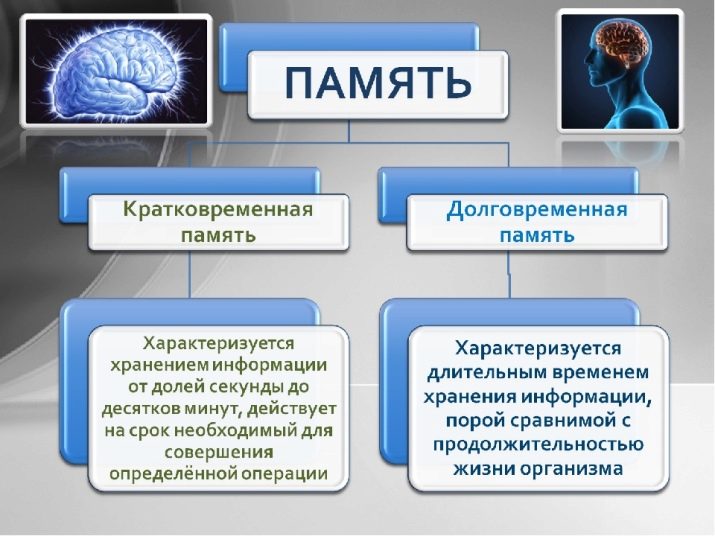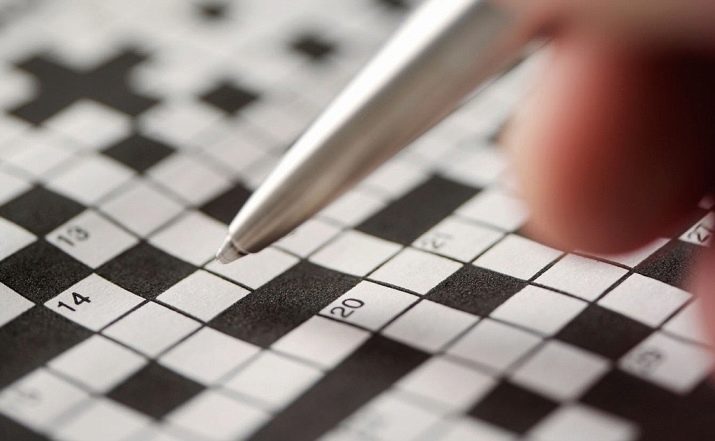According to the duration of information storage in the brain structures of an individual, short-term (CP), long-term (DP) and random access memory (OP) are distinguished. A person who has received the task of remembering new information, for the successful completion of the task, refers not only to previously acquired knowledge (DP), but also to specific instructions and instructions that help to realize the intended goal (OP).
What it is?
In the middle of the twentieth century. Scientists have identified ongoing operational transformations in short-term memory when an individual carries out cognitive processes. During the execution of complex mathematical calculations, when solving problems, intermediate results are kept in the head until a person operates on them. Subsequently, part of the action is forgotten. Extra information for further work is supplanted from memory. The period of their storage is determined by the task posed by the individual. Data can be stored from seconds to several minutes. Repression of unnecessary facts frees up space for the assimilation of new information.
Researchers have defined this process. RAM is the retention in the brain structures of a person of the initial data necessary to perform a single act of action. The main characteristic of the OP is the memorization and reproduction of information necessary for the implementation of a specific operation in the current activity.
Thus, the operational memory in psychology is an intermediate link between short-term and long-term memorization.It works when the individual conducts actual operations for a short period of time in order to preserve the trace of the image necessary to carry out the current task.

Basic properties
The functioning of OP is associated with strong neuropsychic stress due to the interaction of a number of opposing centers of excitation. OP is capable of holding no more than two variable factors at the time of operating with objects whose state is changing.
A person perfectly understands complex long phrases thanks to a good OP. The comprehension of the text is due to the short-term memorization of some of its elements. The mathematical problem can be solved, because for some time the necessary numbers are kept in memory.
Random access memory is characterized by selectivity, superficiality and short duration. For example, when preparing a presentation, a student remembers his report to the smallest detail, up to the choice of intonation at the time of the speech. After the presentation, the essence of the information presented remains in a long-term storage of memory, and small details and some subtleties of reproduction of the presentation itself are erased.

How to develop?
Any modern person knows that pumping up the computer's RAM means testing its bandwidth and latency, as well as adding extra volume. Is it possible for a person to train this function of the brain in order to increase the capacity of this type of memory? It is possible to improve the productivity of EP by means of maximum load, the absence of which accelerates the process of weakening and aging of mental function.
Mechanical memorization of educational material does not allow knowledge to break out of the operational storage into a long-term archive. Machine learning memorized verses and prosaic text does not contribute to the development of OP. The benefit is the meaningful memorization of rhyming lines and prose, replenishing the vocabulary, learning foreign languages, solving problems, solving crosswords and puzzles.

Prospects for strengthening the OP are subject to the implementation of daily training exercises. Examples of tasks assigned to a person:
- daily journaling with fixing interesting information received during the day;
- speaking aloud any perceived new information;
- retelling to relatives, friends, acquaintances of the plots of the films watched, the contents of the books read;
- a written description of the architectural features of the seen building;
- compilation of an identikit of any passer-by, a randomly met person;
- interest in mastering the functions of new smartphones and other electronic equipment;
- nightly recovery in the memory of experienced emotions, events of the past day with the mental recreation of the smallest details in the reverse order.

Memory can only be trained in action. Solving simple problems, verbal calculations without the use of a calculator are an excellent training in RAM.
Division into groups
All information received should be structured. The division into blocks effectively affects the final result. Reading by syllables, groups of words helps to organize the integrity of the memorized text.
To quickly memorize a number consisting of 9 characters, it is advised to divide it into parts of 3 digits. Suppose you need to remember document number 314365404. The first group of digital characters can be associated with the number pi. The second third of the number is remembered by the number of days in a year. The last digital group is associated with the occurrence of an error when searching for the necessary information on the Internet, when the message “Error 404 Not Found” is displayed on a blank screen.
When combining learned individual digital groups, playback of the entire number is quick and easy.

Mnemonics
Information of any complexity is well remembered through the use of mnemonics, aimed at the imaginative perception of the material. The technique involves the creation of associative connections, increased concentration of attention. The incoming information is mentally encoded by generating images. The process involves the attraction of smells, taste sensations, sounds, music, pictures and a wide variety of emotions.
To remember important information, you do not need to immediately fix it in a notebook. First you need to create an image in your imagination, a vivid association. The more absurd the associative series are, the easier it is to remember the necessary material. It is not difficult to reproduce the list of necessary purchases in memory using the method of linking to objects encountered along the way from the apartment to the supermarket. For example, a person should buy tomatoes, sugar, canned corn, slippers, toothpaste, a children's jacket, and the latest issue of a favorite magazine.
When memorizing it is necessary to exaggerate the images intentionally, revive objects, modify them, and focus on the specific details of the object. Not a single purchase will be lost if a person presents his way to the place of purchase of goods. Upon leaving the apartment, in his imagination, he stumbles upon a huge mountain of fresh bright red tomatoes. Passing by the mailboxes, a potential buyer sees how white sugar is quickly pouring from their slots.
A huge can of corn blocks the exit to the street, the size of which can exceed human height. Slippers of bright colors stick out from an urn standing near a bench at the entrance. Tubes of toothpaste are scattered casually on the bench. The lilac bush is covered with a children's jacket, sparkling due to neon lights. The trail is littered with colorful magazines.

Involving musical works in the learning process helps to relate specific information to specific sounds. Subsequently, the sound rows allow you to extract the necessary information from the brain structures without unnecessary efforts.
The advantage of using music to remember facts is the ability to relax the psyche and respite in using active attention. Along the way, stress is relieved.
Proper nutrition, sufficient replenishment of the body with vitamins, a healthy lifestyle, a good sleep, daily walks, physical exercises contribute to improving the functioning of RAM. It is advisable to avoid negative emotions and stressful situations. Smokers and drinkers have a significant reduction in remembering any information, so there is a direct sense to get rid of bad habits.











